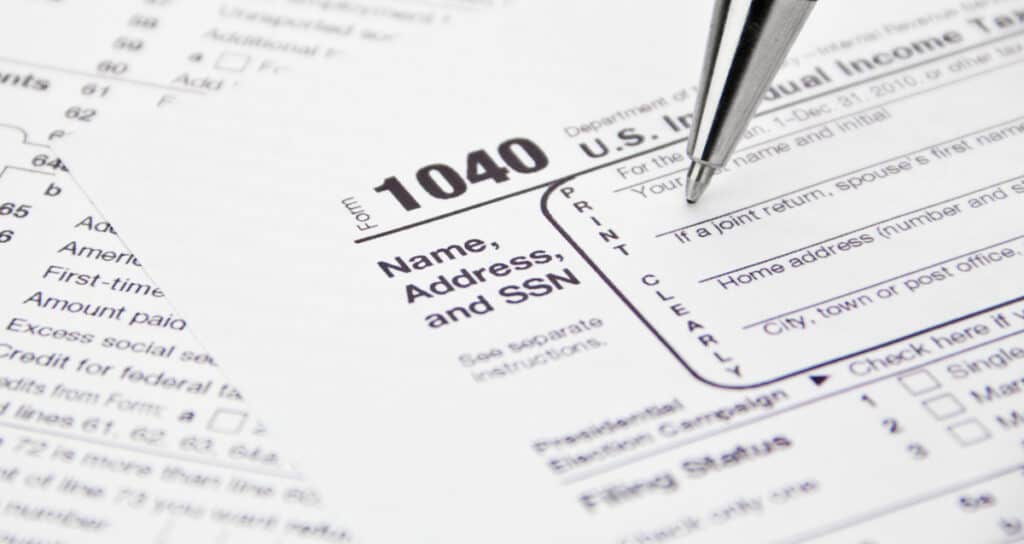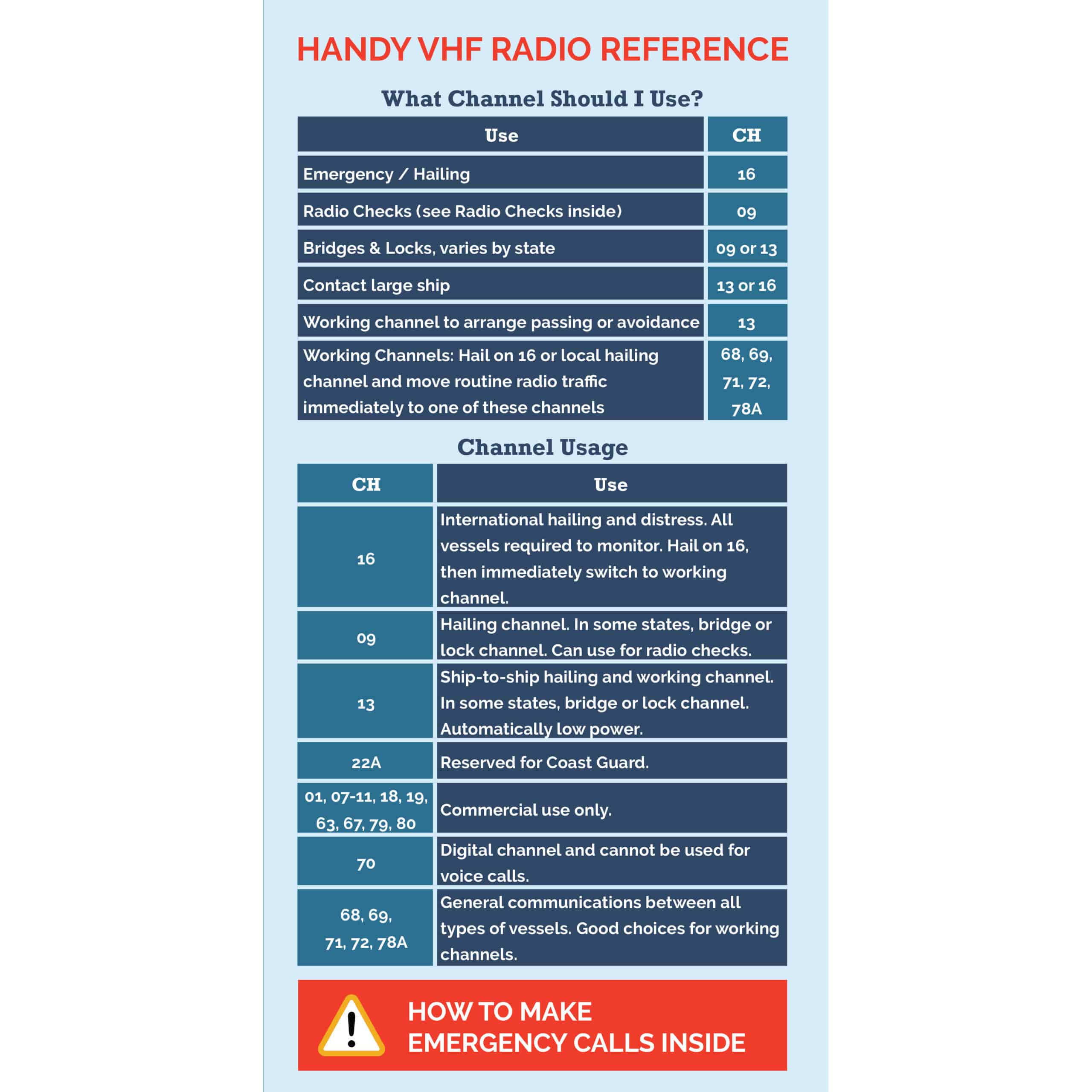Uggh. Taxes. You can’t escape them, even by cruising off into the sunset. So how do you collect all the documents and numbers, complete all the forms, file and pay/get your refund.
Okay, I’m American. So this is obviously going to deal with US taxes.
There are three basic ways of dealing with income taxes while you’re cruising:
- Extension. If you’re a part-year cruiser, you can get a 6-month extension and then deal with it all when you get “home.” Since you do still have to pay any taxes you owe by April 15, you need to have a pretty good idea of your income and make sure that you’ve had enough withheld or made estimated payments made to cover the taxes. Any overpayment will be refunded when you file; you’ll owe interest and possibly penalties if you underpaid.
- Accountant. You can hire an accountant to deal with it all and make sure to get all the information to them in plenty of time. The problem lies in collecting the needed information and getting it to the tax professional: much of it can be found online (see tips for this below). But there always seems to be at least one item that only comes through the mail. Make your arrangements with the tax preparer ahead of time and figure out how you’ll communicate.
- E-File. Tax software lets you prepare and file your taxes wherever you are as long as you’ve got a reasonably fast and secure wifi. This has been our option, using a downloaded or online version of TurboTax. Again, you need access to your documents (see below).
Fast and Secure Internet
With any of these, you’re going to need an internet connection that is not painfully slow or subject to frequent drop outs. You may have to make plans to spend a few days in a larger city just for good internet. I wouldn’t use public wifi for this – we have always paid for cellular data or the most secure wifi or hardwired connection we could. You’re going to be accessing all your financial information!
Even if you’re opting to get an extension or work with an accountant, you’re going to need access to your documents. If you’re filing for an extension, you can do it online but you want to check that there are no surprises in W-2s, 1099s, and so on. If you’re working with an accountant, you’ll want to check your documents and also be able to communicate via email and possibly via Skype or other “phone” service (to avoid the cost of international calls).
Printer
If you opt for preparing your own taxes and e-filing, it’s incredibly helpful to have a printer available. Unless your taxes are extremely simple, you’ll probably want to print some documents out as you’re preparing your taxes (it makes it easier to enter things that you can’t import) and it’s a good idea to print and proof the whole return before filing. I find that I do a much better job of proofing with a paper copy than trying to do it on my laptop screen. I prefer not to have to go to a marina office, public library or internet café to print as I worry that they may not be particularly secure.
Last Year’s Tax Forms
Make sure you have a copy of last year’s taxes with you – no matter what option you choose, you may very well need to refer to it. If you or your accountant/tax service used software to prepare it (and who wouldn’t?), it’s usually very easy to make a PDF copy and store it on your laptop, external drive or data stick. Otherwise, keep a paper copy with you.
If you’ll be using tax prep software and used it last year, be sure to have a copy of the data files on your laptop, CD or data stick so that last year’s info can be imported into this year’s return. It will really save time and prevent errors.
Document Access
Well before tax season, make sure that you have signed up for online access to all your financial accounts (it’s a good idea in any event to cut down on the amount of paper that has to be forwarded to you). Many of these can be directly imported into tax software; others you’ll have to download and transfer the numbers.
- W-2 – many employers do offer some type of online access; even many small companies do if they utilize a payroll service. Most tax software lets you import it directly.
- 1099-MISC – if you work as a freelancer or have many other types of income, you’ll get 1099-MISCs from anyone who paid you over $600. Some have ways for you to get them online but many don’t. See my alternate ways to get documents, below.
- Banks – not just the ones you think of as your “bank” but also any that you have credit cards, loans or mortgages with, as well as any where you have any retirement accounts (IRAs, etc.).
- Investment Services – brokerages and any place else you have money invested. If you get a K-1 from a partnership, many of those are now available online too.
- Social Security – If you get Social Security payments, you can finally get your 1099-R online. Sign up at MySocialSecurity; to get your 1099-R, click on the link to get a “replacement” 1099-R.
- Pension – if you draw a traditional pension, many companies now have ways for you to access your 1099-R online. Obviously this varies by company or government entity.
- Health Insurance Marketplace – you’ll need a copy of your Form 1095 if you had health insurance through the marketplace or a state exchange. You can get one from the Federal marketplace under “Documents” and I believe from all state marketplaces as well.
You may need other documents as well – check your tax records for the last couple of years to see what all applied to you and then use Google to find out if they are available online.
Every year, I can get more and more documents online. You’ll also need all the “normal” personal records such as charitable contributions, medical expense receipts, and so on. Some may be available online, such as prescriptions from some pharmacies but realize that this doesn’t work well if you’re on the move and use numerous different locations for services.
Keeping your own records is best – we keep a big Ziploc bag that we put all possible “needed for taxes” receipts and documents in. For us, it’s been a long time since we’ve had enough medical expenses to deduct but we never know what may happen later in the year so we save all the receipts from January 1 – we can always throw them out if we don’t need them for tax purposes.
Paper Documents
There is always something that only comes in the mail it seems. Some number that’s not in my records and I can’t get online. I need what’s in the mail.
A good mail service can really help out. Whether it’s a friend, family member or professional mail service, you can have them find the envelope, open it and either scan/photograph the document or just type the bit of info that you need. Two things – you want someone you trust and they need to be comfortable with technology – scanning or photographing the item and attaching it to an email. You could, of course, have them forward the mail to you if you have time.
Start Early
I cannot overemphasize the importance of starting early when working on taxes remotely. It will take longer than you think, especially if you have problems getting a document.
E-Filing Tips
A couple of notes about e-filing, particularly if you haven’t done it before:
- Any good program includes all the IRS forms you’ll need so you don’t have to worry about trying to find them.
- If it’s your first year using tax prep software, you’ll have to enter all your info. In subsequent years, it will import a lot from the previous year and you can make changes as necessary. I find this is great to remind me of all sorts of things I might otherwise forget such as “last year you received interest from XYZ Bank – did you receive interest from it this year?” (I had forgotten to import the tax info from this account). You can also tell it that an item no longer applies (for example, the other bank account we closed).
- You can pay taxes or get a refund directly from/to your bank account. You just need the routing number and account number from the bottom of a check to use your checking account. To use a savings account, consult your bank – usually directions are on the bank’s website. If you owe money, you can go ahead and file when everything is done and schedule the payment to be made closer to the tax deadline.
- If we have to pay, we schedule the payment somewhere from April 5 to 10 just in case there’s any glitch. There never has been, but if I’m outside the US I don’t want to be trying to resolve it at literally the last hour.
- Do a final update on the software just before filing in case they’ve made any changes.
- Most tax software packages come in several versions, depending on how complex your tax situation is. Choose wisely – but most do allow you to upgrade to a higher package in the middle of preparing a return if you discover that you chose the wrong one. When I did this a couple of years ago (with TurboTax) I did not lose any of my work and it did not cost any more than to have gotten the higher-level package in the beginning.
Estimated Tax Payments
If you need to make federal estimated tax payments, you can pay online from your checking or savings account (free) or with a credit card (fee). You can use it to make any federal tax payments needed. I recommend making your payment at least a few days in advance of any deadlines in case there are any internet problems or anything. You can also use this to make payments in connection with filing for an extension.
Some states also have online payment options for state estimated taxes; Google to determine if your state does. Twenty-five states and various municipalities also let you use a service called Official Payments with a credit or debit card which charges a convenience fee (you can also use it for some local income and real estate tax payments, utility bills and more in a pinch).
In Sum
Taking care of tax obligations is a heck of a lot easier now than it was when we began cruising in 2002. Back then, we knew of a number of people who scheduled trips “home” just to deal with taxes! That’s no longer necessary unless you have a very complex tax situation (perhaps having sold a business to go cruising). Still, you have to plan ahead and make sure you have access to what you need.
Flatten the learning curve with practical how-to info that gives you the confidence to step into life aboard.
Start Learning Today

Carolyn Shearlock has lived aboard full-time for 17 years, splitting her time between a Tayana 37 monohull and a Gemini 105 catamaran. She’s cruised over 14,000 miles, from Pacific Mexico and Central America to Florida and the Bahamas, gaining firsthand experience with the joys and challenges of life on the water.
Through The Boat Galley, Carolyn has helped thousands of people explore, prepare for, and enjoy life afloat. She shares her expertise as an instructor at Cruisers University, in leading boating publications, and through her bestselling book, The Boat Galley Cookbook. She is passionate about helping others embark on their liveaboard journey—making life on the water simpler, safer, and more enjoyable.










Barbara Gray says
Great info..thank you.
Christopher Nunnery says
I’m an accountant, wanting to cruise. Maybe we can set up “Bay” appointments.
The Cynical Sailor & His Salty Sidekick says
Great tips as always! Just a word of caution for anyone who might use the Free File fillable forms. I tried to file our taxes this way but kept getting error messages whenever I tried to submit. It turns out there is a bug with one of the forms, so I ended up having to file the old fashioned way using paper forms. It’s not a form that most people probably use (Form 1116), so probably doesn’t affect too many people, but just in case I thought I would flag it up as there might be bugs with other forms as well.
Heather says
If you are worried about security on an open wifi (and you should be!), consider using a virtual private network (VPN) to encrypt your data. This way, you can safely browse on a public wifi. Tunnel Bear offers a free plan that should cover you for your basic, monthly privacy needs.
I also use a VPN with my BTC (Bahamas Telecommunications Company) data plan when I access sensitive, financial information. [It also solves the unique issue of BTC IP address jumping. ]
Carolyn Shearlock says
Thanks for that addition!
Gloria Dawn Turek says
Do you owe taxes? If not you are not required to file
evan says
That is incorrect. You must file a return even if you do not owe taxes.
Anna says
Another reason to file even if you don’t owe is that it starts the clock on the statute of limitations. If you never filed at all, you could be subject to investigation years later. Or so an accountant once told me.
Monika Ludewig Bradley says
I am a CPA. Very well written article, as usual. I am also available for “boat calls”!
thea says
What state do you file in if you are always on the water or even one if land cruising?
Carolyn Shearlock says
Wherever your legal residence is. If you Google, you’ll find numerous “tests” for what is your legal residence — things like driver’s license, voter registration, declaration of legal residence (you can file one in some counties in Florida), etc.
Christine Link says
Great advice as usual.While in the Bahamas several people had family members mail them important papers to do their taxes,most people never got them.You either follow Carolyn’s timely advice or pay a fortune for them to FedEx them to you.
Anonymous says
Great idea for a post, Carolyn! How to file taxes is a concern for many cruisers.
The Boat Galley says
It’s a huge one.
Anonymous says
anyone that can afford to ‘cruise’ like this, should have ‘people’ for that
The Boat Galley says
Many of us cruise on tight budgets. In fact, many find that cruising is cheaper than living on land. Of course, that depends on the boat you have, the systems you’ve added, and where you are cruising. But most cruisers aren’t “rich.”
embree says
If one no longer resides in a “STATE” of the Union as a Perpetual Traveler
There most likely is NO TAX OBLIGATION
Cut the Cord. 🙂
Carolyn Shearlock says
It’s more complicated than that. Consult a tax professional.